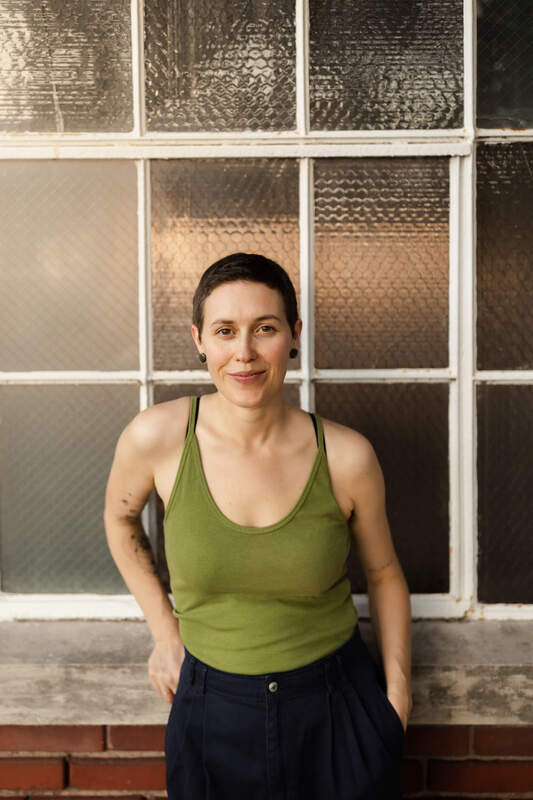
Intimacy or Enmeshment?
“My mom and I are so close; I tell her everything.” This is something I often hear from clients when I first begin working with them. But with time what we often discover is that what the client thought of as “closeness” was actually enmeshment. Enmeshment is a term that describes a lack of healthy boundaries in relationship. Read more about enmeshment in my article, What is Enmeshment and Why Is it Harmful?
If You Are Enmeshed With Your Parent You Might...
- Habitually avoid saying “no,” or avoid setting healthy boundaries for yourself, even when you know it would be best for you to do so, in order to protect their feelings or to avoid conflict.
- Feel overly responsible for your parent’s emotions and reactions, and avoid doing things that are important to you if you know they won't approve.
- Avoid conflict because you are scared it could ruin your relationship.
- Feel unable to fully relax or be yourself around your parent.
- Be deeply impacted by your parent’s moods. You might feel anxious when your parent is in a bad mood and feel like it's your responsibility to fix it. (If this fits for you, read my article on parentification.)
- Put your parent’s opinion/thoughts/beliefs above your own when trying to make important decisions (this often happens unconsciously).
- Feel anxiety, guilt, shame, or some other kind of intense emotional dysregulation, when your parent is upset with you.
- Have a hard time functioning if you and your parent are in some kind of conflict or disagreement.
Enmeshment and Arrested Development in Adulthood
| When we have an enmeshed relationship with one or both of our parents this can make it difficult to fully differentiate and individuate from our family of origin. Differentiation and individuation refer to the natural processes of coming into our own and discovering who we are separate from the family we grew up in. Differentiation and individuation are essential self-exploratory processes. They are the developmental tasks which enable us to enter into adulthood and create a meaningful and fulfilling life. If we subconsciously avoid them because we are afraid that it will negatively impact our relationship with our parents, it is a recipe for mental health disaster. |  Photo by Furkan Değerli on Unsplash |
Getting this message can make it feel very scary to grow up, because growing up means doing things differently than our parents did. Growing up requires a certain degree of healthy not-caring about what other people think or how they feel about our decisions. If there are even small parts of us that fear losing the support and approval of our parents as we go through the natural, healthy processes of differentiation and individuation, we will subconsciously hold ourselves back in many damaging ways.
Better Boundaries, Better Relationships
Our relationship with our parents is an important one, so we want it to be as healthy as possible. So how do we move from enmeshment to genuine closeness?
 Photo by Marie-Michèle Bouchard on Unsplash | When we improve our boundaries, we improve our relationships. So often people mistake boundaries as a tool meant to create distance or to punish others, but healthy boundaries are the opposite. Healthy boundaries are what allow us to be truly close with other people. Boundaries are what make it safe to be ourselves, and to allow other people to be themselves. Boundaries allow for differences without fear that we will lose ourselves or need to be different than who we actually are. As Brene Brown says, “clarity is kindness.” Being honest and straightforward about how we wish to be treated, what we like and don’t like, what works for us and what doesn’t, is kind because then people know where they stand; understanding expectations creates safety in relationships. |
We're Enmeshed, What Now?
Here are some steps to start taking if you are aware that your boundaries with your parents are unhealthy:
- Educate yourself about the difference between healthy boundaries and unhealthy boundaries.
- Get curious about your own patterns in your relationship with your parents. What part do you play in the unhealthy dynamic?
- Start working to heal your inner child. It is usually young, scared parts of us that are desperate for our parent's approval, fearful of upsetting them, and therefore behaving in codependent ways.
- Determine what changes you need to make in order to have healthier boundaries with your family. What can you change about your own behavior in order to promote a healthier, more appropriate dynamic?
Meet the Author
| Ready to heal your codependent patterns? Maggie is a therapist based out of Lawrence, Kansas who specializes in therapy for highly sensitive adults, therapy for self-worth, therapy for anxiety, therapy for childhood trauma. Maggie is passionate about helping people overcome shame and the fear of being their true selves. Breaking the cycles of people-pleasing and self-abandonment is possible; you don't have to suffer alone. Maggie offers online therapy throughout the state of Kansas. Reach out today to schedule your free 15 minute phone consultation! |
Other Services Offered by Maggie
In addition to providing online therapy anywhere in Kansas, Maggie is also a professional astrologer, and offers Birth Chart Readings anywhere in the United States, as well as abroad.
Astrology is a powerful tool for gaining self-awareness, finding meaning in and understanding of our difficult experiences, and for receiving validation regarding our own unique life path. All of which supports our mental health in a positive way!
Interested in getting a Natal Chart Reading? Book a free phone consultation and let’s get started!


 RSS Feed
RSS Feed
